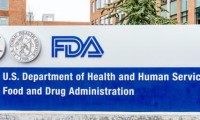-
FDA says Ipca Labs failed to address quality issues with bad API batches
- Source: drugdu
- 110
- July 6, 2023
-
FDA approves Skyline Therapeutics’ IND for macular degeneration trial
- Source: drugdu
- 113
- July 6, 2023
-
Regeneron’s high-dose Eylea hit with surprise FDA rejection over manufacturing hiccups
- Source: drugdu
- 98
- July 6, 2023
-
BioMarin Wins FDA Approval for First Gene Therapy for Hemophilia A
- Source: drugdu
- 111
- July 4, 2023
-
FDA approves CellTrans’ Lantidra as first cellular therapy to treat type 1 diabetes
- Source: drugdu
- 129
- July 3, 2023
-
Lantidra wins FDA approval as first-ever type 1 diabetes cell therapy
- Source: drugdu
- 207
- July 3, 2023
-
FDA seeks feedback on technologies that can enable healthcare at home
- Source: drugdu
- 119
- July 2, 2023
-
FDA repeats restrictions on NuVasive limb-lengthening device after clearing pediatric use
- Source: drugdu
- 121
- July 1, 2023
-
FDA rejects Alvotech’s Humira biosimilar for the third time
- Source: drugdu
- 110
- July 1, 2023
-
BioMarin’s hemophilia gene therapy Roctavian lands FDA nod with ‘glimmers’ of enthusiasm among doctors
- Source: drugdu
- 106
- July 1, 2023
your submission has already been received.
OK
Subscribe
Please enter a valid Email address!
Submit
The most relevant industry news & insight will be sent to you every two weeks.













